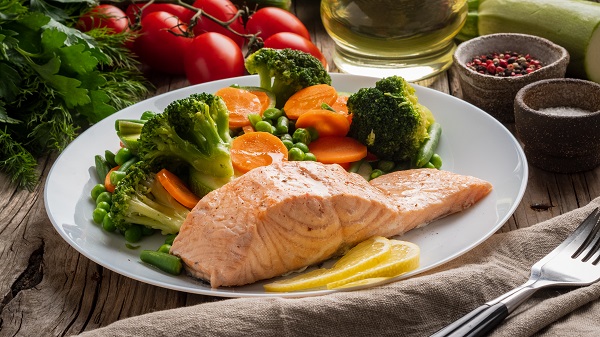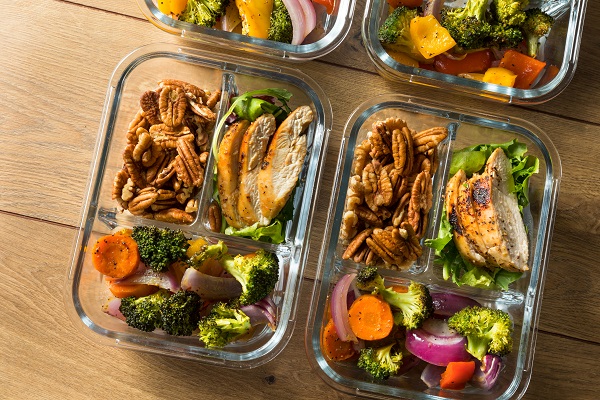The ketogenic diet has been growing in popularity over the last couple of years. The ketogenic diet is an eating plan that puts your body into a metabolic state called ketosis, where you burn fat instead of sugar for energy. This means that when you’re on the keto diet, your liver converts fatty acids into molecules called ketones – which then become available as fuel for all parts of the body (except the muscles). The best part? You can still eat small amounts of carbs like in certain vegetables and fruit! But there are some things to keep in mind if you want to try it out.
Contents
Slowly Cut Out Carbs
If you want to start a keto diet, the best way to do it is by slowly cutting out carbs. This will help your body get used to burning fat for energy instead of sugar. Start by cutting out processed carbs like white bread and pasta. You can also try swapping sugary snacks for keto-friendly snacks like nuts and seeds.
Load Up On Healthy Fats
When you first start a keto diet, your body may be craving carbs because it’s used to getting them from certain foods. To help keep cravings at bay and supply the keto diet with fat-burning fuel, load up on healthy fats like butter, olive oil, and coconut oil, as well as fatty fish such as salmon and sardines.
Eat When You’re Hungry
You should try to eat when you feel hungry on a keto diet, not necessarily at traditional mealtimes. This can help prevent overeating and snacking between meals, making weight loss harder to achieve. If this sounds hard to do, consider trying intermittent fasting (where you fast for 16 hours each day) or simply eating smaller meals more often.
Drink Plenty Of Water
Water is essential on any diet, and the keto diet is no exception. Aim to drink at least eight glasses of water per day to keep your body hydrated and help with weight loss. If you find that you’re not drinking enough water, try adding a little lemon or lime juice to make it more palatable.
Avoid Processed Foods
Processed foods are a no-no on the keto diet. This includes things like sugary drinks, candy, and processed snacks. These foods are high in carbs and sugar and tend to give you the energy jolt that you might be craving. So before you start, attempt to remove most of the processed foods in your home, so you’re not tempted to eat them once you have begun the diet.
Get Plenty Of Rest
Eating healthy is only one part of the equation. The other half involves working out and getting plenty of rest. On the keto diet, it’s important to work out at least three times per week, so your muscles don’t burn through too many calories. As far as sleep goes, try to prioritize seven or eight hours per night for best results.
Know-How To Test Ketone Levels
When you’re starting out on the keto diet, it’s important to test your ketone levels to ensure you’re in ketosis. You can do this by using ketone test strips which you can buy at most pharmacies or online. Alternatively, you can use a blood ketone meter to give you more accurate results.
Make A Meal Prep Plan
While it might sound simple, you’ll need some preparation to make sure you get the best results possible. Write down all of your meals and snacks ahead of time to avoid getting stuck with nothing to eat if you get hungry during the day. If possible, prepare more food than you think you’ll need so that there is no risk of going hungry, especially if you have a busy schedule! When thinking about what meals to cook, opt for high protein options like meat and fish, which will help fight off hunger pangs.
Attempt A Fasting Schedule Before
If you’re not sure whether the keto diet is for you, try fasting before making the full commitment. Fasting is a great way to see how your body reacts to going without food for an extended period. You can fast for 16 hours each day by only eating during an 8-hour window. This can be a good way to ease into the keto diet if you’re unsure about whether or not it’s the right fit for your lifestyle.
Talk To Your Family
Last but not least, it’s important to have the support of your loved ones when starting a keto diet. This can be helpful in terms of accountability and getting ideas for meals and recipes. Family and friends can also provide emotional support if you feel overwhelmed or struggle with the diet.
Conclusion
So, there you have it – everything you need to know about starting a keto diet. Remember that it’s important to be patient and take things one step at a time. Rome wasn’t built in a day, and the keto diet is no exception! If you’re feeling overwhelmed or struggling, don’t hesitate to seek help from a professional or your loved ones. Good luck on your journey!












